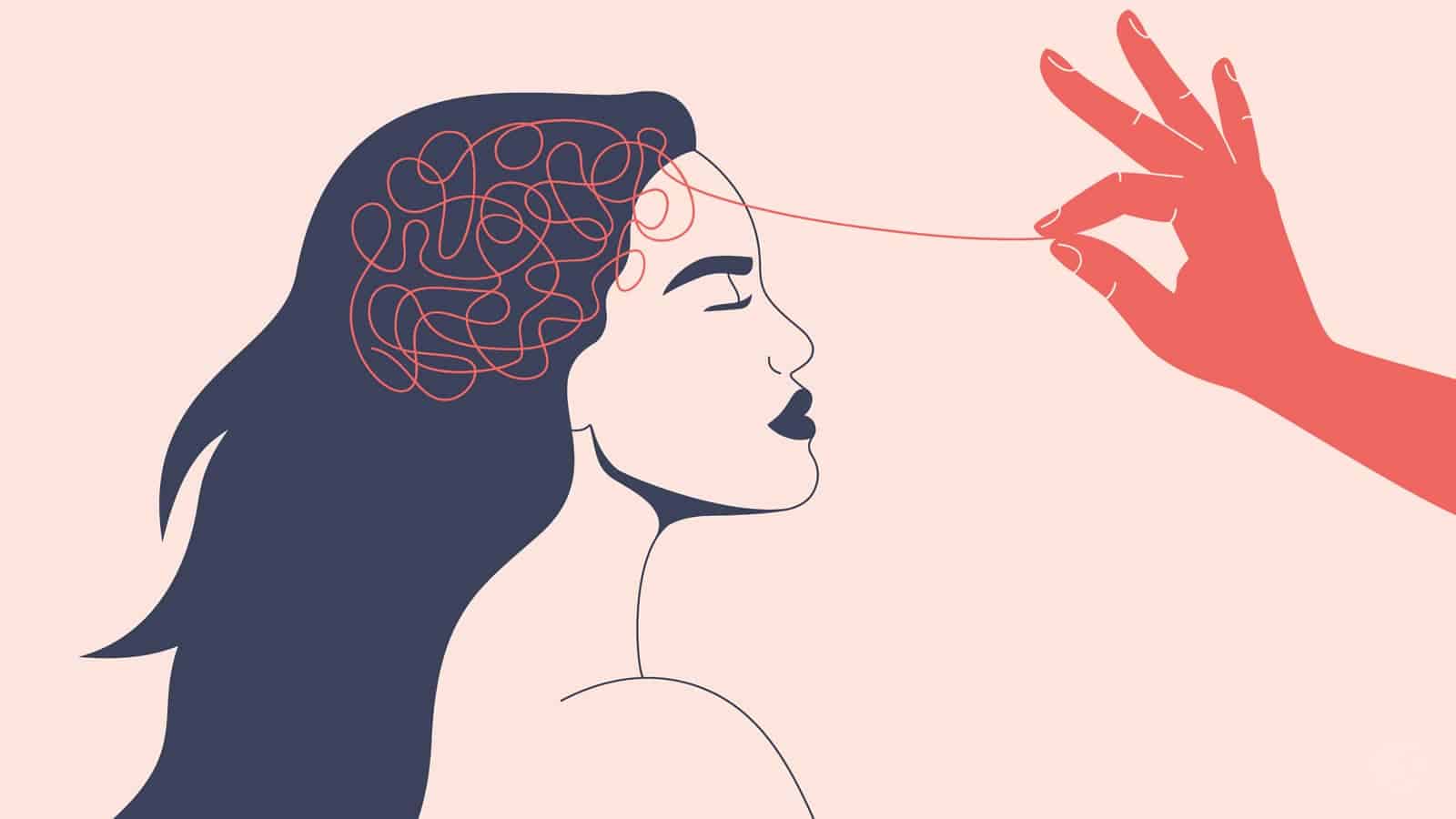Mental illness recovery is a journey that’s far from easy. It’s challenging to have a severe mental health issue that can last years or a lifetime.
The good news is that more than 65 percent of the people who suffer from mental illness have a successful recovery, according to National Alliance on Mental Illness.
The key is to be proactive in your healing process. The brain is an organ just like any other part of your body, and it can become sick and diseased. Sadly, people categorized mental illness in a different league, and the stigma causes many folks to forgo necessary treatment.
Breaking The Stigma of Mental Health Disorders
Perhaps, the number of folks who’ve recovered would increase if more people got help. If a person is diagnosed with diabetes, they learn how to manage the symptoms to live life to the fullest. The recovery process does not mean you’re necessarily cured of the condition, but it’s about learning to manage it effectively.
Diabetes isn’t a death sentence, but it can be if it’s not managed, and the same can be said of a mental ailment. Even if you have anxiety, depression, bipolar disorder, schizophrenia, or borderline personality, you’re going to live. The key is the quality of life depends on you and your mindset.
Managing Mental Illness Recovery
None of these illnesses are terminal, but you can manage them by using the following tools:
- Therapy
- Self-determination
- Support from family and friends
- Staying active and not behind four walls
- Hope and faith in your abilities
- An excellent medical team behind you
Ask anyone who’s recovered from any illness, and they will tell you that your loved ones are an integral part of the process. The people who love you are there to listen to you when you’re hurting, help you develop ways to make things better, and guide you through their life experiences.
Seven Things to Consider About Mental Illness Recovery
The recovery process is different for each person, largely dependent on the type of illness. However, there are some basic strategies that you can use to manage the symptoms of your condition, and you will learn a new normal. Here are some things you can do to assist in your mental illness recovery.
1. Never Give Up Hope
Hope is the basis of all healing journeys. If you don’t believe and have hope that you will conquer your illness, you won’t accomplish anything. Have you ever met someone who has a condition like cancer who’s lost their will to live?
It won’t be long after they lose their will to keep going that they will perish. You must determine within yourself that no matter how hard the journey or where you must go, you will go on. Without hope, you won’t do much in life, let alone manage an illness.
2. Exercise Self-Determination
Do you know what it means to have self-determination? Many people might confuse this term with self-sufficiency or independence, but it means that you control your destiny. It’s a combination of your attitude and abilities and your desire to reach the goals you set.
When you have an illness, you need to take charge to see things get done. If you want to recover, then you must pursue recovery. It’s about more than just popping a magic pill, as it’s about seeking out the best treatment options and making wise decisions concerning your health.
Did you know that the treatment you choose during a mental health crisis can give you the power to take control over your health if you become incapacitated? Whether you’re dealing with mental or physical health, you must be a self-advocate. No one knows how you’re feeling but you.
Additionally, you have the right to ensure that you’re given the best care possible, and if you don’t agree with something being done, you must speak up. It’s your mental illness recovery, so that gives you the power to say yes and no to specific treatments.
3. Find the Right Care and Team
If you genuinely want to experience mental health recovery, then you need the right team standing behind you. Your visions must align with those of the practitioners. There will always be some degree of risk when considering treatment plans, but your physicians should listen to your desires before implementing any strategies.
Many community factors can impact your care. Some mental health recoveries will include finding affordable housing that provides some assistance. Others will need employment opportunities for those with special needs.
If your direct physician cannot help you with resources, at the very least, they should be able to direct you to someone who can assist.
4. Utilize Community Assistance
The growing attention for mental health care in this country has opened many resources. For instance, mental illness recovery today has more treatment plans, support, and trials than ever before. You don’t have to utilize traditional treatments, especially if you prefer a more holistic approach.
Did you know that many times mental illness is caused by vitamin and mineral deficiencies? According to research conducted by the National Library of Medicine, it’s often found that people with depression, bipolar, schizophrenia, and anxiety have deficiencies like omega–3 fatty acids, vitamin D and B, as well as magnesium.
So, no one says you must take the standard treatments, as you have a right to choose your path to fight for your mental illness recovery.
5. Managing with Stigma
The stigma regarding mental health recovery is widespread. Don’t be surprised if friends, family, or some medical providers still dishonor mental health care. In many instances, the damaging impact of this humiliation can be more significant than dealing with the illness.
When you don’t get the support you need from certain individuals, then you should limit interactions with those people. You want peers who will help you along the way and not hinder your treatment.
6. Connecting with Peer Support
Peer support is invaluable on this journey, according to research. When you connect with other folks going through the same issues, you suddenly don’t feel like an island all to yourself. Folks walking the same path can help you deal with the lonesomeness and isolation you feel, and they can offer the recognition and support you need.
Additionally, part of mental health recovery is having mentors who can share their experiences with you. Their tips and tricks can help you learn what to expect and what to avoid. Someone who has recovered can be an asset, as the journey is never easy.
You mustn’t lose your self-worth or your esteem in the process. Your illness should never define you, and people should never judge you based on things out of your control.
7. Don’t Delay Treatment
Do you know how many people know they’re sick but don’t reach out for help? They delay seeking treatment because of the stigma or just not wanting to face reality. When dealing with mental health, progress happens in a series of steps.
Just remember that one step can become two, and two can become four, and so on. Don’t make huge goals that you cannot meet, but you need to set small, obtainable goals that you can realistically achieve. If you’re dealing with driving anxiety, you don’t want to develop a plan to drive the I-95 freeway from Florida to Virginia.
Instead, you want to set something more realistic for yourself, like driving from your home to the post office. Maybe the next day, you will go a bit further. Patience and persistence are the keys to achieving whatever goals you set.
Another major part of your recovery is celebrating those successes. When you make it to the post office with your driving anxiety, celebrate. No, you don’t have to have a party with friends for each goal conquered, but you should pat yourself on the back.
Adults are much like children in that you like rewards for a job well done. So, reward yourself and stroke your ego a bit, as it will help you go further in your recovery.
Final Thoughts on Mental Illness Recovery
When you’ve been diagnosed with a mental or physical ailment, it can be devastating. You have more questions than answers initially, and you don’t know what to do to assist in your recovery. However, over time, you learn that peer supports, a medical community, and many other things can help you manage this condition.
You can gather support from mentors who’ve walked this path but remember that every journey is individualized. You must practice self-care and know that you get to call the shots in your mental illness recovery. What works for one person may not work for you, so you must find a practitioner and team to listen and advocate for you.
While you may never be cured of the mental health problems that plague you, you certainly can learn how to manage them. You will soon discover a new normal and start to enjoy the things in life that seemed impossible.

















 Community
Community

